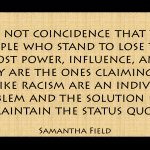Following up on yesterday’s post, there were further topics that Matthew Ferguson explored about ancient biographies of a popular sort and questions of historical accuracy. One of the major points that he highlights is that historical accuracy of details is not a reliable guide to genre. That point may seem counterintuitive, but modern examples will help the point become clear. If you read Little Women, or watch the TV show Little House on the Prairie, there are lots of details that reflect accurate history – the impact of war on families in New England, or place names in Minnesota, to just mention a couple of examples. None of that means that specific details are factual, and that includes major characters. I deliberately included the Laura Ingalls Wilder example precisely because that TV show is based on children’s stories which are in turn based on the author’s actual experiences. As you can hopefully see, the question of what is “factual” and what is “fictitious” is complex and blurry, often cutting across not only specific works but whole genres as well as individual characters who appear in them.
In his “part 1” post on this topic, Matthew also explains that ancient Greek readers and authors had different genres than we do, more of them, and those they had did not consistently overlap with our own ideas of fiction and nonfiction. If the fact that the Greek term for one of those genres was plasma doesn’t persuade you to read the post, probably nothing will.
In his “part 2” post, Matthew explores how the Alexander Romance provides parallels to the work that source and redaction critics engage in with respect to the New Testament Gospels (and others).
I’m also grateful that Matthew, in these and other posts of his, cites and interacts with things that I’ve written that are germane to this subject!













